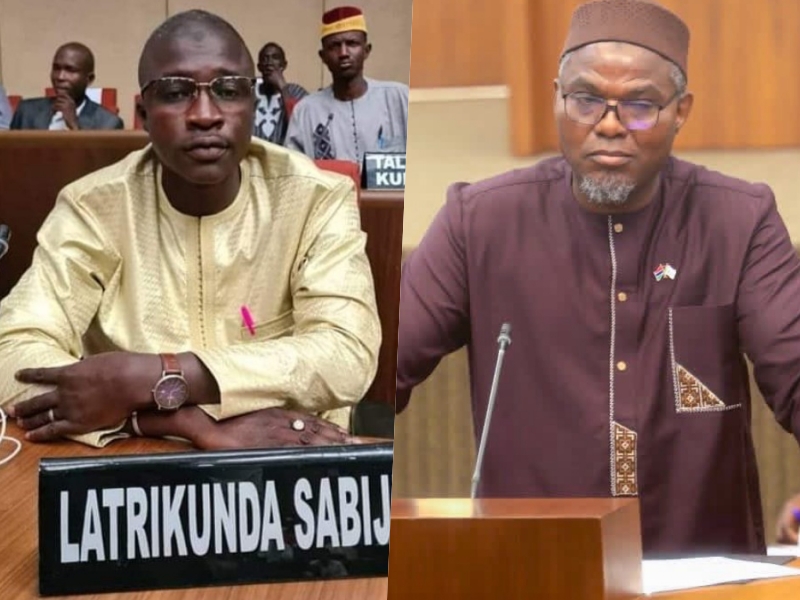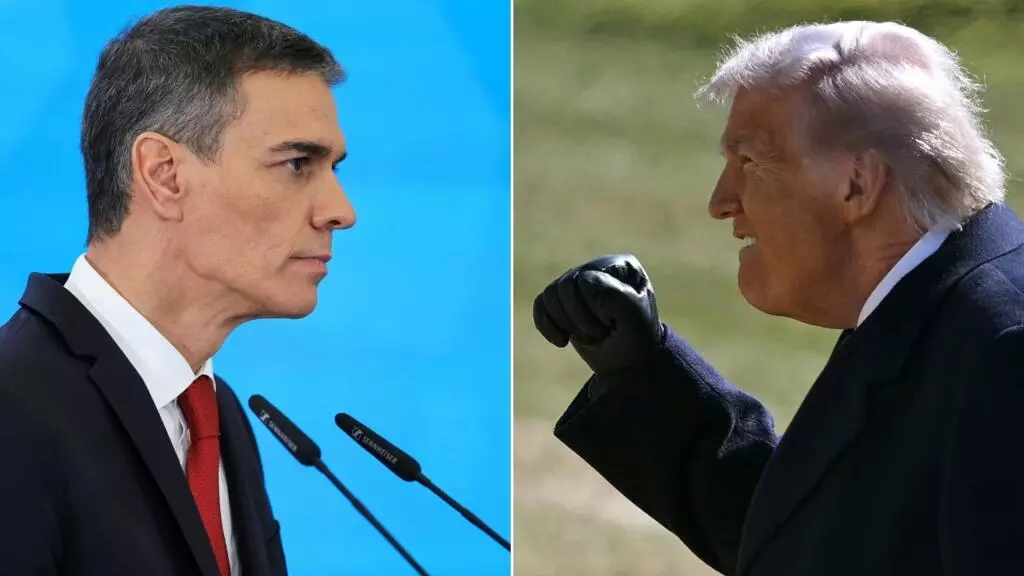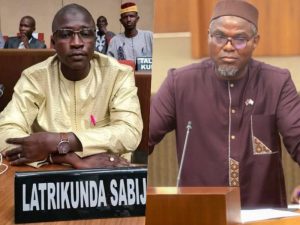Gambiaj.com – (BANJUL, The Gambia) – The Local Government Commission of Inquiry yesterday heard explosive testimony from the former Chief Executive Officer of the Banjul City Council (BCC), Mustapha Batchilly, who alleged that Mayor Rohey Malick Lowe directly influenced a controversial and irregular procurement of waste bins.
During his second appearance before the Commission, Batchilly stated that Mayor Lowe unilaterally decided to purchase 60 wheeled bins from Dembas’s Trading at a cost of D600,000 without involving or seeking approval from the BCC’s Contracts Committee. This, according to Batchilly, was a clear breach of public procurement regulations.
Adding to the irregularity, Batchilly revealed that despite full payment being made, Dembas’s Trading only delivered 10 of the 60 procured bins.
“The decision was made by the Mayor,” he asserted, adding, “I am made to believe that he only delivered 10 but we paid him for 60.” When questioned by Lead Counsel Patrick Gomez about the Mayor’s awareness of this discrepancy, Batchilly confirmed that she was informed but took no action to recover the outstanding bins or hold the supplier accountable.
He further agreed that the Mayor’s actions were wrong and violated the Gambia Public Procurement Authority (GPPA) Act.
The revelations surrounding the waste bin procurement were just the tip of the iceberg as the Commission delved into other questionable expenditures and appointments within the BCC.
Regarding the Banjul-Ostend Project, Batchilly admitted that D496,000 was unlawfully paid to the project team during the Tobaski feast, despite this payment not being included in the approved budget.
While auditors flagged the payment as potentially fraudulent, Batchilly defended it as compensation for extra work following the EU-funded project’s expiry, conceding that it was “not lawful.”
The Commission also scrutinized payments related to the Crab Island Facility design work. Batchilly acknowledged that three separate companies—Njabot, SM Bayo, and Gam Engineering—were each paid for what appeared to be the same design, a practice he admitted was “totally unacceptable” under procurement rules.
He attributed this lapse to a lack of understanding of EU procurement regulations and distanced himself from management’s claims of agreements with all three entities, stating that two of the payments should be recovered.
Furthermore, the Commission examined an D8 million contract awarded to Eco Firm Ecology Construction for the rehabilitation of the Crab Island Facility in 2021.
Shockingly, Eco Firm received D9.1 million, an overpayment exceeding D500,000. While Batchilly did not dispute the overpayment, he offered no clear explanation, admitting that the process should have been better monitored.
The procurement of dustbins from Kebba and Sons also came under scrutiny. Batchilly initially denied knowledge of the company’s ties to the Mayor but later admitted that the proprietor was a long-time family member who even resided at her home.
Counsel Gomez suggested that Kebba and Sons received preferential treatment despite lacking qualifications, to which Batchilly responded, “I won’t deny that.” He noted the bins cost D4,000 each and that while the procurement was GPPA approved, the Council expected better guidance from the agency.
Irregularities extended to the appointment of legal counsel. Batchilly confirmed that Mayor Lowe “headhunted” lawyer Sasum Sillah, a relative, and placed her on retainership without the required competitive bidding process.
While Batchilly claimed this was a common practice for incoming Mayors, he agreed with Counsel Gomez that it violated GPPA regulations mandating the consideration of at least three law firms.
The controversial appointment of Makumba Sanneh, the Mayor’s former campaign manager, as Council Adviser, consultant, and market overseer was also highlighted.
Batchilly stated that Sanneh lacked the necessary qualifications and experience for these roles. Sanneh, who received a D28,000 monthly salary, was also implicated in the alleged illegal issuance of unsigned invoices.
A memo from the Director of Finance, Momodou Camara, dated January 10, 2024, warned against these unauthorized revenue collection practices, accusing Batchilly’s office of complicity. Batchilly attributed the situation to a 2022 financial crisis that led to salary delays, prompting a decentralized revenue collection effort.
He denied acting illegally, stating the plan was necessary after a contract with a private revenue collection firm introduced by Camara was terminated.
Throughout his testimony, Batchilly portrayed a BCC where the political leadership under Mayor Lowe frequently disregarded administrative procedures and accountability. “The administrative branch of the council [headed by the CEO] always dances to the tune of the political branch [headed by the Mayor],” he lamented.
When questioned about his failure to resist or report these unlawful decisions, Batchilly claimed to have been “victimized for standing for something right” but could not provide specific examples, only stating that he had been marginalized by the Ministry.
The ongoing Commission of Inquiry continues to unearth significant governance and procurement issues within the Banjul City Council, raising serious questions about transparency and accountability in local government.










